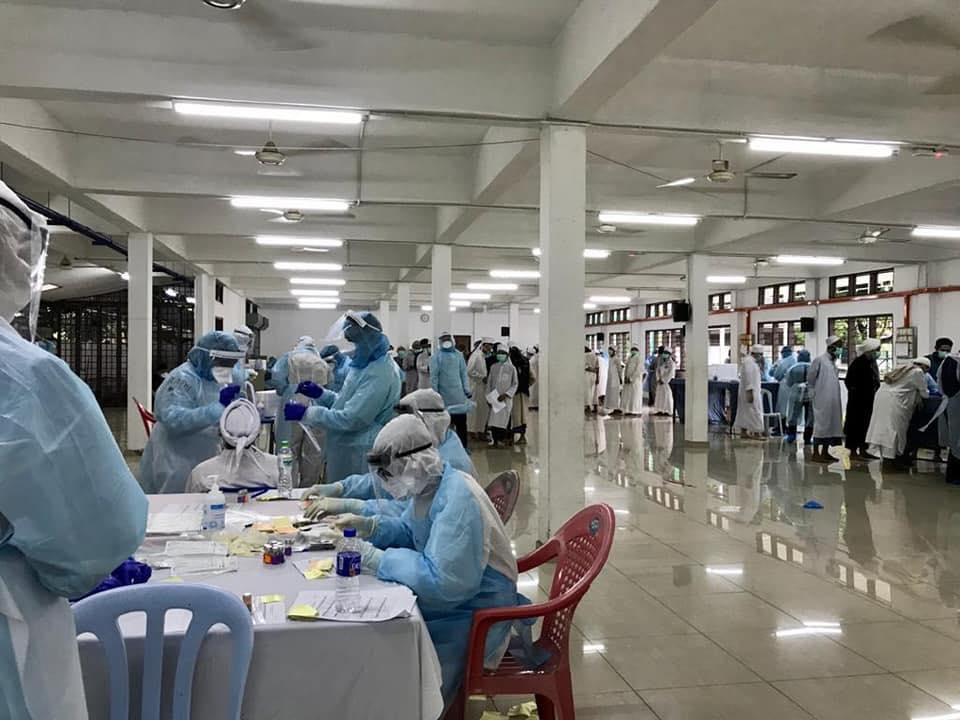KUALA LUMPUR, March 23 — A virologist estimated that the national partial shutdown could be extended by another two months if the government fails to contain the coronavirus outbreak in Malaysia.
Prof Dr Sazaly Abu Bakar told Berita Harian that the return of thousands of Malaysians back to their hometown shortly after the Movement Control Order (MCO) came into effect on March 18 could contribute to failure to contain the outbreak.
“One of the mistakes was when people from epicentres, Kuala Lumpur and Selangor, returned to their hometowns.
“It’s as if we didn’t learn from Italy’s mistakes that ultimately made the coronavirus outbreak more chronic in that country,” Dr Sazaly was quoted saying yesterday.
He said if Malaysians still ignored the MCO, did not practice social distancing, or practice good cough etiquette and cleanliness, the stay-at-home order could be extended by another six to eight weeks.
“The problem is that our people are not as disciplined as the Koreans or Japanese. When I went to the hospital yesterday, I saw some still touching each other and not closing their mouths when they cough.”
Dr Sazaly also urged the government to emulate South Korea, Japan, and Taiwan in conducting aggressive coronavirus testing in the communities by going door-to-door, instead of the Ministry of Health’s (MOH) current strategy of waiting for sick people to show up for tests.
“Now, we’re still waiting for those who are ill or confirmed positive (through contact tracing) to come to hospital. It’s like waiting for whether the victim has fallen ill, recovered, or died.
“It’s ‘emergency’ now and we are at war, we can’t use the old methods. In [South] Korea and Japan, they deploy their medical machinery to look for patients. For example, [South] Korea does 20,000 Covid-19 tests a day,” he said.
The virologist told the government to enter coronavirus hotspots and test everyone in those areas. If infections are found, patients can be quarantined and given medicine, without necessarily having to go to hospital. Malaysia’s Covid-19 hotspots are Petaling Jaya, Selangor; and Lembah Pantai, Kuala Lumpur; among others.
“These community tests don’t have to be done just by MOH, in fact even the police, army, universities, and qualified non-government organisations can be deployed to help. In this war, use whatever resources we have. We can’t move alone,” Dr Sazaly was quoted saying.
He also questioned why the majority of coronavirus deaths in Malaysia were those aged below 60, unlike in China, Italy, Japan, and other countries. Older adults aged above 65 and those with serious underlying medical conditions are believed to suffer higher risk of serious complications from Covid-19.
Health director-general Dr Noor Hisham Abdullah said yesterday that MOH had the capacity to run 3,500 PCR tests daily and would scale up to 7,000 tests daily this week, before ramping up to 16,000 tests daily in April.
He said those have had close contact with a positive Covid-19 case, whether they display symptoms or not, can get tested. However, some anecdotes claim that government hospitals have refused to test asymptomatic people, even if they have had close contact with confirmed cases.
Paediatrician Dr Amar-Singh HSS wrote today that Malaysia was estimated to have only tested over 13,000 people as of March 20.
Wired reported that South Korea has conducted more than 307,000 tests as of March 19, the highest per capita in the world. Although the Asian country has over 8,000 coronavirus cases and 94 deaths, South Korea cases are now in relative decline.
“The backbone of Korea’s success has been mass, indiscriminate testing, followed by rigorous contact tracing and the quarantine of anyone the carrier has come into contact with,” wrote Wired.








